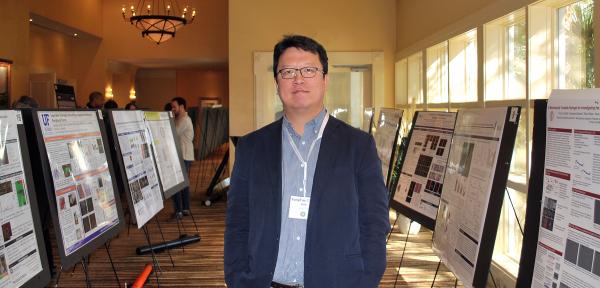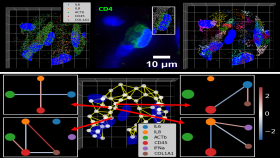YongTae Kim, a researcher in the Petit Institute for Bioengineering and Bioscience at the Georgia Institute of Technology, has been awarded an R21 grant from the National Institutes of Health (NIH).
Kim, who is an assistant professor in both the Woodruff School of Mechanical Engineering and the Wallace H. Coulter Department of Biomedical Engineering at Georgia Tech and Emory, will use the two-year, $424,000 grant to leverage his team’s research, which is focused on mitigating Alzheimer’s disease.
“Our study outcomes will serve as a foundation for translating the basic research and technology to the clinics, accelerating advanced central nervous system delivery of therapeutic and diagnostic agents,” says Kim, who is collaborating with Srikant Rangaraju, a physician-scientist who is an assistant professor in the Emory School of Medicine’s Department of neurology.
Rangaraju, a board-certified neurologist, is a trainee of Alan Levey, director of Emory’s Alzheimer’s Disease Research Center, who will serve as consultant and advisor on the grant.
Currently, the disease-modifying effects of therapeutics on Alzheimer’s disease is hindered by poor central nervous system penetration across the blood-brain barrier (BBB). But Kim and his fellow researchers believe they can overcome that obstacle with a better system of delivering precious therapeutic payloads.
“The goal is to leverage our engineered nano-carrier, enabling sufficient penetration of a small molecule inhibiting microglial Kv1.3, thus attenuating neuro-inflammation for Alzheimer’s disease treatment,” Kim says.
Media Contact
Jerry Grillo
Communications Officer II
Parker H. Petit Institute for
Bioengineering and Bioscience
Keywords
Latest BME News
Courses in the Wallace H. Coulter Department of Biomedical Engineering are being reformatted to incorporate AI and machine learning so students are prepared for a data-driven biotech sector.
Influenced by her mother's journey in engineering, Sriya Surapaneni hopes to inspire other young women in the field.
Coulter BME Professor Earns Tenure, Eyes Future of Innovation in Health and Medicine
The grant will fund the development of cutting-edge technology that could detect colorectal cancer through a simple breath test
The surgical support device landed Coulter BME its 4th consecutive win for the College of Engineering competition.
New research from Georgia Tech helps doctors predict how therapies will interact with a child's immune system, potentially improving outcomes and reducing risks.
Georgia Tech researchers reveal the dynamic role of inhibitory neurons in spatial memory and learning








